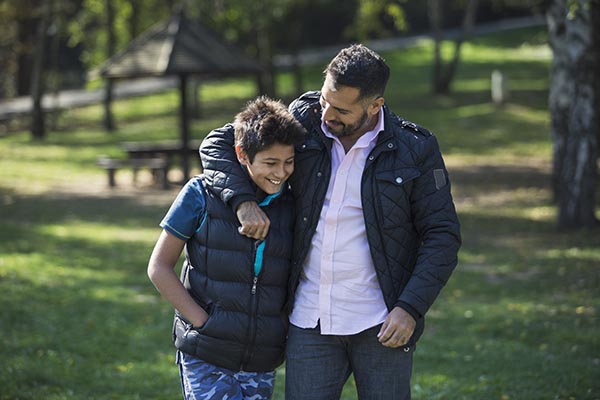It’s the school summer break and parents often find themselves juggling chaotic schedules filled with endless activities, noisy homes, and still trying to manage the ongoing demands of work and other commitments.
During these busy times parental self-care is even more crucial, yet often it’s more likely to be neglected during the summer break.
We spoke to our members for tips parents can use to manage stress and make the best out of the summer holiday.
Set realistic expectations
Counsellor and member Rachel Vora says you must accept that you can't do everything.
“It's okay for your children to be bored sometimes or for activities not to go as planned. These moments can teach resilience and creativity.”
Schedule 'me' time
“Just as you schedule children's activities, schedule regular intervals for self-care,” says Rachel, “This could be anything from a quiet coffee break to a walk in the park. Thirty minutes alone is enough to provide a vital recharging for your emotional and physical energy.”
Armele Philpotts, counsellor and member, agrees and says: “Summer can be hectic, schedule in quality time with your partner if you have one, and for yourself.”
Connect with other parents
“Sharing your thoughts and experiences with other parents can provide support and reassurance,” says Rachel, “It helps to know you are not alone in feeling overwhelmed or guilty sometimes.”
Armele suggests messaging other parents from your child’s friendship group and arranging to meet in local parks.
“You could try trading childcare with parents of your children's friends, who you trust, to help everyone out. Kids get to play with their friends, and you get some time to work, spend with your partner, or spend with their siblings,” she adds.
Stay active
Rachel says: “Physical activity is not only good for the body but also for mental health. Incorporate family activities involving exercises like biking, hiking, or even a simple football game. This benefits everyone and helps manage stress.
Armele agrees and says these don’t have to be expensive activities, especially for younger children.
“Many areas offer free or cheaper public transport for children under 16 so pack a picnic and head out on the bus. If the place you’re going to has a tourist information office make that your first stop on arrival - there'll be free activities and suggestions for places to look at nearby.”
Swap social media for mindfulness
“Techniques such as meditation, yoga, or deep-breathing exercises can be incredibly beneficial in managing stress and anxiety,” says Rachel, “Even a few minutes a day can make a significant difference.
“Be mindful as well of how much time you spend on social media. Comparing your everyday moments to the highlights on social media sets unrealistic expectations.”
Set a sleep schedule
“Fewer responsibilities and commitments do not mean all routines go out of the window. Set expectations for your kids at the onset of summer on a regular bedtime,” says Rachel.
“It’s good for your children to get proper sleep and it benefits you as well to have a little time at the end of the day to yourself!”
Plan ahead but be flexible
Having a plan can reduce anxiety but being flexible is crucial. Not everything will go as planned and adapting to changes can help reduce potential stress.
If you do go abroad a great activity is taking kids to a supermarket and exploring what’s different and what’s the same. Use the opportunity to buy and try some new foods, you could mark them together and share what you do and don't like about them.
Let the kids have a say
Armele suggests letting your children pick from a list of activities.
“Kids love to be involved. Decide on some doable activities and allow them to choose between two. If your child has siblings let them take it in turns to choose, with the non-chooser being in charge of something else that day.”
Appreciate the time together – whatever the weather
“Rainy days can be a challenge for everyone,” says Armele “You can find lots of suggestions for activities aimed at different skill levels online.
“Remember time together is an opportunity to build connections. We do this by experiencing new places and situations together, by exploring the world. As parents we can be the guides while our children experience something for the first time, and we can also enjoy trying new things together.”
To find a registered BACP therapist to help with stress or family relationships, please visit our Therapists Directory.

How to create positive parent and child relationships
Our members share tips and advice on improving family relationships

Children’s Mental Health Week: Using our voice to support young people in need
Our call for action on school counselling, in a year where a General Election is expected

Sleep well, feel well
Our members provide advice and tips for better sleep
